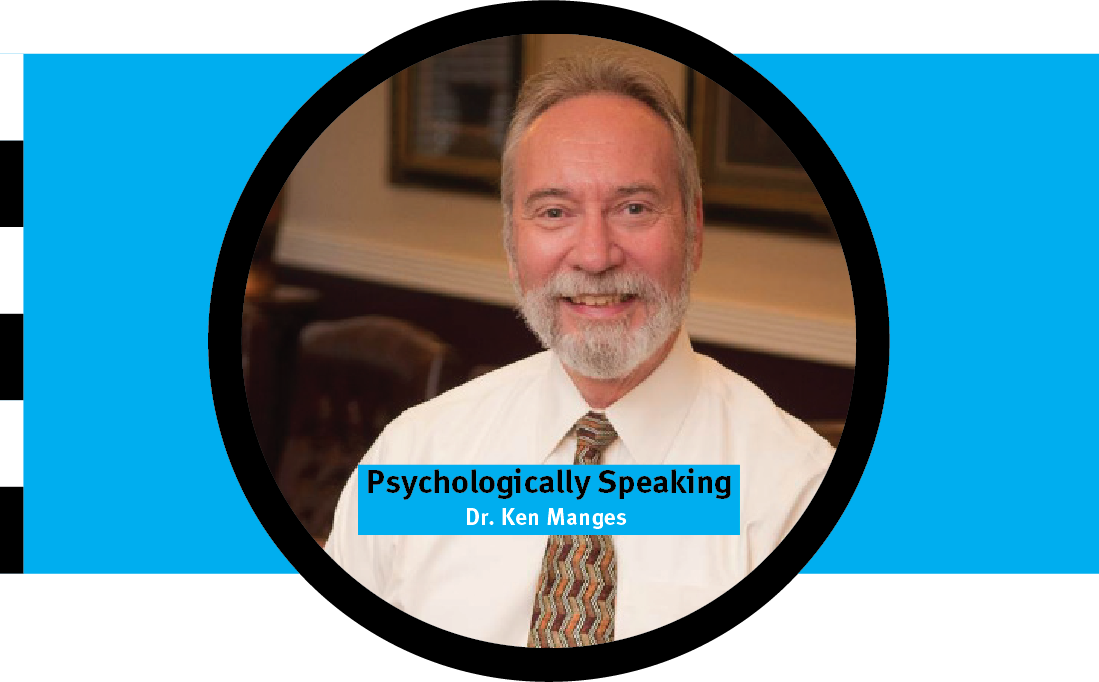
Here is a medical riddle for you. Do you want to know how to keep your memory sharp, increase your ability to process information and emotions as well as restore your metabolic balance, reboot your immune system and stave off contagious diseases?
And the answer is… get better sleep.
“Each night, when I go to sleep, I die. And the next morning, when I wake up, I am reborn.” ― Mahatma Gandhi.
Akin to a common refrain by the young and ill informed, some of us treat sleep as a waste of time and are prideful about sleeping as little as possible, with a mindset of “I’ll sleep when I’m dead.” Little do they know they are bringing on their death sooner by their cavalier and innocent ignorance about catching the requisite amount of sleep for their longevity and health.
Sleep is complex, and as Peter Attica mentions in his new book, “Outlive,” poor sleep is associated with multiple negative consequences including “obesity, exacerbation of diabetes along with increased glucose levels, and metabolic dysfunction.”
What is sleep? All of us do it. Some with panache. Others with lucid dreams (so real we know we are dreaming and reportedly can change the course of the dream, as though we are a director of our slumber).
Others amongst us have snoring and sleep talking or sleep walking as a part of our repose.
Let’s start with the basics. Sleep doesn’t just happen: it is a part of the human condition. We have a circadian rhythm. We have wakefulness, when we know we are awake and are driving, working, talking, cooking, playing, etc. Then there is sleep. When the brain goes into very predictable stages, unless interrupted by metabolic disruptions like Parkinson’s or Alzheimer’s. Or toxins like drugs (prescriptive and illicit) or alcohol.
Circadian rhythms are the physical, mental, and behavioral changes that follow a 24-hour cycle. They are a natural process and react primarily to light and dark and affect most living things, including animals, plants, and even microbes.
Chronobiology is the study of circadian rhythms. One example of a light-related circadian rhythm is sleeping at night and being awake during the day. According to the National Institutes of Health, there are four circadian rhythms, Diurnal (night and day), Circadian (24 hours), Ultradian (less than 24 hours), Infradian/Circalunar (1 month) and Circannual (1 year).
If your rhythm is out of whack, it may be due to your having a circadian rhythm that is advanced or delayed sleep-wake phase disorder, irregular or non–24-hour sleep-wake rhythm disorder, shift work or jet lag disorder. The type you may have is based on your pattern of sleep and wakefulness.
A nonprofit group focused on sleep recently published a blog post about the state of sleep in 2023. Their findings are not surprising. They assert that “sleep is one of the three pillars of health, along with nutrition and movement and is a fundamental part of our overall health and wellbeing.”
As unbelievable as it may seem, the authors of the blog proposed that “Sleep comprises one-third of an individual’s life, affects all aspects of health and, conversely, is affected by everything that is going on in the mind and body, as well as in the environment.”
But what about sleep in the 21st century? Are we sleep deprived?
The statistics show we are definitely sleep deprived. According to Sleep dot org, “About 50 to 70 million Americans have sleep disorders, and 1 in 3 adults (about 84 million people) do not regularly get the recommended amount of uninterrupted sleep they need to protect their health.”
Other sources confirmed this finding. A 2022 Gallup survey found that “only 32% of Americans said they got “excellent” or “very good” sleep; 35% described their sleep as “good”; and 33% said their sleep was “fair” or “poor.” What about you? How would you rank your ability to get restful sleep?
Did COVID impact our ability to sleep? Spoiler alert, what was it like not being able to get together with a friend or the converse, not being able to get away from kids and loved ones, even if it meant just going to the store?
The Better Sleep Council conducted a survey in 2021 and asked a sample of 2,000 Americans aged 18-55+ about the pandemic’s impact on their sleep. They found “COVID-19 has affected poor sleepers even more: They are experiencing physical and emotional pain, as well as a decline in mental health — almost half (48%) say their mental health has declined in the past year. We know poor sleepers have more stress, but they are also more likely to say that being a parent is a significant source of stress for them.”
As expected, poor sleepers struggle with sleep — they do not sleep enough, struggle to fall asleep, wake up frequently and cannot go back to sleep after waking up. The Better Sleep Council goes on to say “Over two-thirds (70%) wake up tired, and over half (60%) say they rarely, if ever, wake up rested or refreshed. Although most people don’t use sleep-promoting medication or other tools to help them sleep, poor sleepers are more likely to do so than excellent sleepers.”
What do you think the Better Sleep Council found out about some of the causes of their sample’s sleep deprivation? If you mentioned the small screens we spend so much time in front of before going to sleep at night, you would be right!
According to the National Heart, Lung and Blood Institute, there are 80 different sleep disorders, insomnia being the most common. The institute provides a free online brochure. Their website also offers a guideline for questions you can anticipate from your doctor, including how often you have trouble sleeping and how long you’ve had the problem. When you go to bed and get up on workdays and days off. How long it takes you to fall asleep, how often you wake up at night, and how long it takes you to fall back asleep. Whether you snore loudly and often or wake up gasping or feeling out of breath. How refreshed you feel when you wake up, and how tired you feel during the day. And how often do you doze off or have trouble staying awake during routine tasks, especially driving.
“Without enough sleep we all become tall two-year-olds.” ― JoJo Jensen.
When we suffer from poor sleep we probably have some bad habits. We are more likely to have screen time, and during the pandemic, we may have also increased our alcohol consumption, along with less of a routine for going to sleep at a specific time, eating a late-night snack and possibly sleeping in because we didn’t have a job to go to or our routine for getting up was disrupted.
Can we overcome our sleep deprivation with a siesta? Are Siestas good or bad?
Androniki Naska, Eleji, Oikonomous, et.al., in their 2007 study of over 25,000 participants, “Siesta in Healthy Adults and Coronary Mortality in the General Population,” published in the Archives of Internal Medicine, found that persons who, at enrollment, were free of medically substantiated CHD, stroke, or cancer and for whom risk factors for CHD, including diet and physical activity, were ascertained in detail, that siesta was associated with lower risk of coronary mortality.”
Is there a difference between coma, sleep and the sleep induced by anesthesia?
Curiously there are similarities between all three forms of unconsciousness, but they are decidedly different. According to Emery Brown, Ralph Lydic and Nicholas Schiff in their article in the New England Journal of Medicine, 2010, a coma typically accompanies a traumatic brain injury, unless it is a medically induced coma, and regardless of the cause, the person in the coma has no rapid eye movement phase to their unconsciousness and they won’t awaken even if poked with a pin, or if a foul odor is placed under their nose.
During anesthesia the sleep stages are similar to sleep but breathing may be altered along with muscle tone and cardiac rhythm.
With non-drug induced sleep and non-coma, we can be awakened by loud noises, being touched or smelling something obnoxious, none of which would awaken someone from a coma or anesthesia.
What are the records people have achieved with sleep and wakefulness?
If there is one thing that we humans enjoy, it’s competition. Sleep and wakefulness have not escaped our desire to out-do each other.
According to unscientific observations, Guinness Book of World Records being one source; “the longest record for days without sleep belongs to Randy Gardner. He reportedly stayed awake for 11 straight days when he was 17 in the name of science. In 1964, Randy volunteered to go as long as possible without sleep and let researchers study the changes in his brain activity. Previously, Peter Tripp held the first record at 201 hours and suffered from hallucinations for several days after. Between Peter and Randy, Honolulu DJ Tom Rounds made it to 260 hours. Randy tapped out at 264 hours and slept for 14 hours straight after. By the tenth day, Randy was unable to complete simple mathematic equations and experienced hallucinations and a lot of confusion. Now with so much awareness about how harmful sleep deprivation can be.” Interestingly, the Guinness World Records organization no longer responds to attempted records of sleep deprivation.
Although I don’t offer medical advice, the articles and books I’ve read to prepare for this column seem to point in the same direction: Want to sleep better? Stay away from the small screens and television screen for a half hour before retiring for the night. The same goes for cutting back on caffeinated beverages and alcohol for several hours before going to sleep. When in the bedroom, keep the temperature cool (69 degrees), draw the blinds or use night shades to block out the light. Set a regular time to go to sleep and to wake up, even on the weekends, even if you’re on vacation or retired. Enjoy.
Have a story about sleep you’d like to share? Please send it my way. Thanks for reading the column. Please go to the AI website and post a comment. Questions? Suggestions? Send me an email at psychology@americanisraelite.com. Be well. Stay safe. See you here next month.




